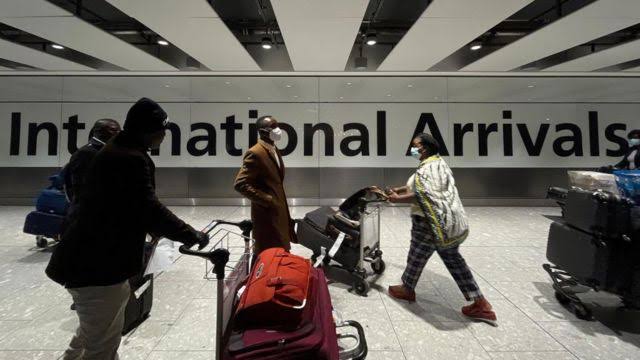Nigeria’s healthcare system is facing an alarming crisis as the mass exodus of medical professionals continues to deplete an already overstretched sector.
Thousands of doctors, nurses, and other healthcare workers are leaving the country for better opportunities abroad, prompting urgent calls for government intervention to prevent a total collapse.
According to the Federal Ministry of Health, Nigeria had 74,543 registered medical doctors as of 2018, with a doctor-to-population ratio of 1:2,753, far from the World Health Organisation’s recommended 1:600. However, nearly 50 per cent of these doctors have since left the country, exacerbating the crisis.
A 2017 survey by NOIPolls and Nigeria Health Watch found that 88 percent of Nigerian doctors were actively seeking opportunities abroad. Between 2015 and 2022, more than 5,000 Nigerian doctors migrated to the UK alone, and the trend is accelerating. Similarly, the Nurses and Midwives Council of Nigeria (NMCN) reported that 42,000 nurses and midwives left the country between 2021 and 2024.
The Nigerian Association of Resident Doctors (NARD) stated in July 2023 that only about 9,000 resident doctors were remaining in the country. Meanwhile, the Medical and Dental Consultants Association of Nigeria (MDCAN) revealed that over 100 consultants had resigned from 17 tertiary health institutions within two years.
The Nigerian Medical Association (NMA) estimates that only 25,000 out of 110,000 registered doctors were practising in the country in 2023. Immediate past NMA FCT chairman Dr Charles Ugwanyi highlighted that while 110,000 doctors have been found registrable, fewer than 36,000 renewed their licenses as of April 2022.
Also, the minister of health, Prof. Ali Pate, recently acknowledged that 16,000 doctors had left Nigeria in the last five years, warning of an impending disaster if the trend persists.
However, he also announced that the federal government had doubled the intake capacity of medical, nursing, and other health training institutions from 28,000 to 64,000 annually to address the shortage. He added that a managed migration policy for health workers was in place, alongside efforts to ease the excessive workload on medical professionals.
Despite government efforts, healthcare workers continue to leave due to what stakeholders in the healthcare sector describe as poor remuneration, poor working conditions, and insecurity, among other things.
Former NMA president, Prof. Mike Ogirima, emphasised that “countries worldwide are actively recruiting healthcare workers, and Nigeria’s poor working conditions make it difficult to retain its own.”
Also, the chairman of the Association for the Advancement of Family Planning (AAFP), Dr Ejike Orji, said that any highly trained professional can find jobs anywhere in the world, adding that people always like to go where there are greener pastures.
Therefore, healthcare professionals and stakeholders have urged the government to increase salaries and allowances to match global standards, upgrade hospitals with modern medical equipment, and improve security for healthcare workers, especially in rural areas.
They also called for expanding medical schools, adequate staffing to train more professionals, and the implementation of retention policies to minimise the push factors driving migration.
Prof. Ogirima further stressed the need for Nigeria to balance workforce migration by creating incentives that encourage skilled professionals to stay.



